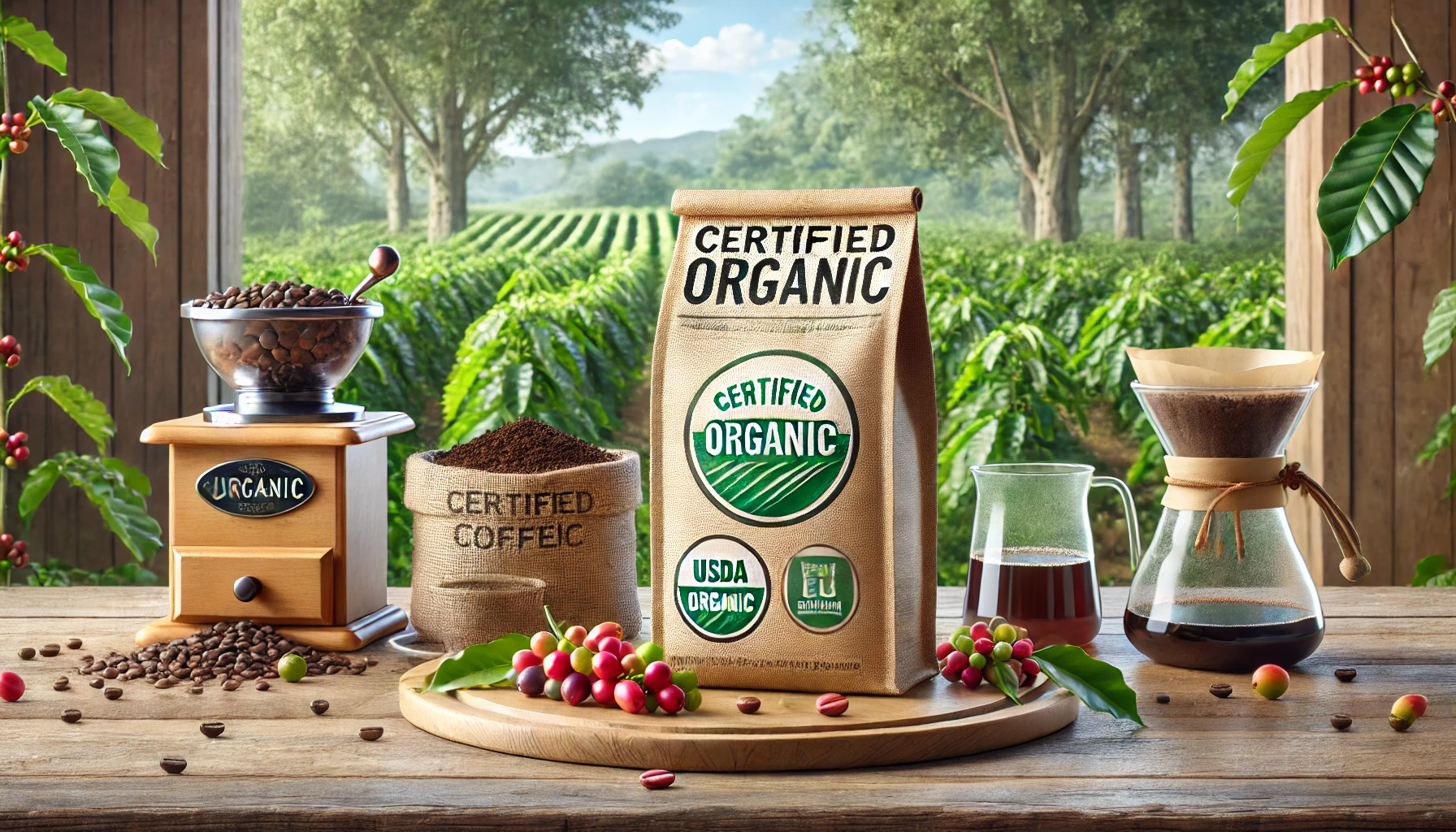As more people seek healthier and more sustainable lifestyles, organic coffee has gained significant attention. But what does it actually mean when coffee is labeled “organic”? Is it better for you, the environment, or just clever marketing?
In this article, we’ll explain what organic coffee really is, how it differs from conventional coffee, and how you can identify genuine organic products when shopping.
What Does “Organic” Mean in Coffee?
Organic coffee is produced using methods that follow organic farming standards, which prioritize natural processes, soil health, and ecological balance. These standards vary slightly by country, but the core principles are consistent.
Key Features of Organic Coffee:
- No synthetic pesticides or fertilizers
- No genetically modified organisms (GMOs)
- Sustainable farming practices (e.g., composting, crop rotation)
- Often shade-grown, which preserves natural biodiversity
- Strict certification and inspection processes
Organic certification is regulated by organizations like:
- USDA Organic (USA)
- EU Organic (Europe)
- IFOAM (International Federation of Organic Agriculture Movements)
- Certified Organic (Brazil, Colombia, etc.)
Benefits of Organic Coffee
1. Health and Safety
Organic coffee is grown without chemical residues, which means fewer synthetic substances in your cup. While washing and roasting remove many contaminants, some trace chemicals may remain in conventionally grown coffee.
Organic coffee is a good choice if you:
- Want to reduce exposure to pesticides and herbicides
- Prefer natural, chemical-free agriculture
- Are seeking peace of mind about what goes into your food
2. Environmental Impact
Organic farming supports a healthier planet by:
- Preserving soil fertility and preventing erosion
- Encouraging biodiversity through shade-grown techniques
- Reducing water pollution from chemical runoff
- Promoting carbon capture by protecting natural forests
It also avoids deforestation and harmful monoculture practices often used in large-scale coffee farming.
3. Farmer Welfare
Many organic coffee producers:
- Use small-scale, traditional farming methods
- Participate in fair trade or direct trade programs
- Receive better prices for their crops
- Are part of cooperatives that reinvest in local communities
While not all organic coffee is fair trade, and not all fair trade coffee is organic, the two often go hand in hand.
4. Taste and Quality
Organic coffee doesn’t necessarily mean better flavor, but many organic coffees are grown by producers who also prioritize quality. Since organic farms tend to focus on small-scale production, there’s often more care taken in:
- Harvest timing
- Processing methods
- Sorting and drying
This results in cleaner, more consistent cups with rich, natural flavors.
How to Identify Genuine Organic Coffee
Look for Certification Logos
Reliable certifications include:
- USDA Organic
- EU Organic Logo
- Rainforest Alliance (when combined with organic claims)
- Fairtrade Organic
These logos indicate the product has passed strict guidelines and regular inspections.
Read the Label Carefully
A trustworthy organic coffee bag will include:
- “Certified Organic” statement
- Certifying body (e.g., ECOCERT, QAI, USDA)
- Origin and processing details
- Roast date
Be cautious with vague terms like “natural,” “eco,” or “green” — these are not regulated and do not guarantee organic standards.
Buy From Trusted Sources
Look for:
- Specialty roasters with transparent sourcing
- Local organic markets or cooperatives
- Subscription services focused on organic and ethical beans
Ask questions like:
- Is the farm certified organic?
- How was the coffee processed?
- Is the certification current?
Common Origins of Organic Coffee
Some countries are known for strong organic production due to local policies, cooperatives, or consumer demand. These include:
Peru
Known for clean, balanced organic coffees from cooperatives in the Andes.
Mexico
Especially Chiapas and Oaxaca, where many smallholder farms follow traditional organic methods.
Ethiopia
Much of its coffee is organically grown by default, even if not certified.
Colombia
Has growing numbers of certified organic farms, especially in high-altitude regions.
Honduras, Guatemala, and Indonesia also produce high-quality organic lots.
Is Organic Coffee Worth the Price?
Organic coffee is often more expensive, but for many consumers, the added cost is justified by:
- Health peace of mind
- Environmental responsibility
- Support for small farmers
- Ethical transparency
That said, not all excellent coffee is organic, and not all organic coffee is high quality. It’s important to look at both the certification and the producer’s reputation.
Final Sip: Conscious Coffee Choices
Choosing organic coffee is about more than avoiding chemicals — it’s about supporting a healthier ecosystem, empowering small farmers, and often, discovering exceptional flavor in the process.
If you’re looking for a coffee that aligns with your values and your palate, certified organic beans are a great place to start. Just remember to check the label and source — because every cup tells a story.

